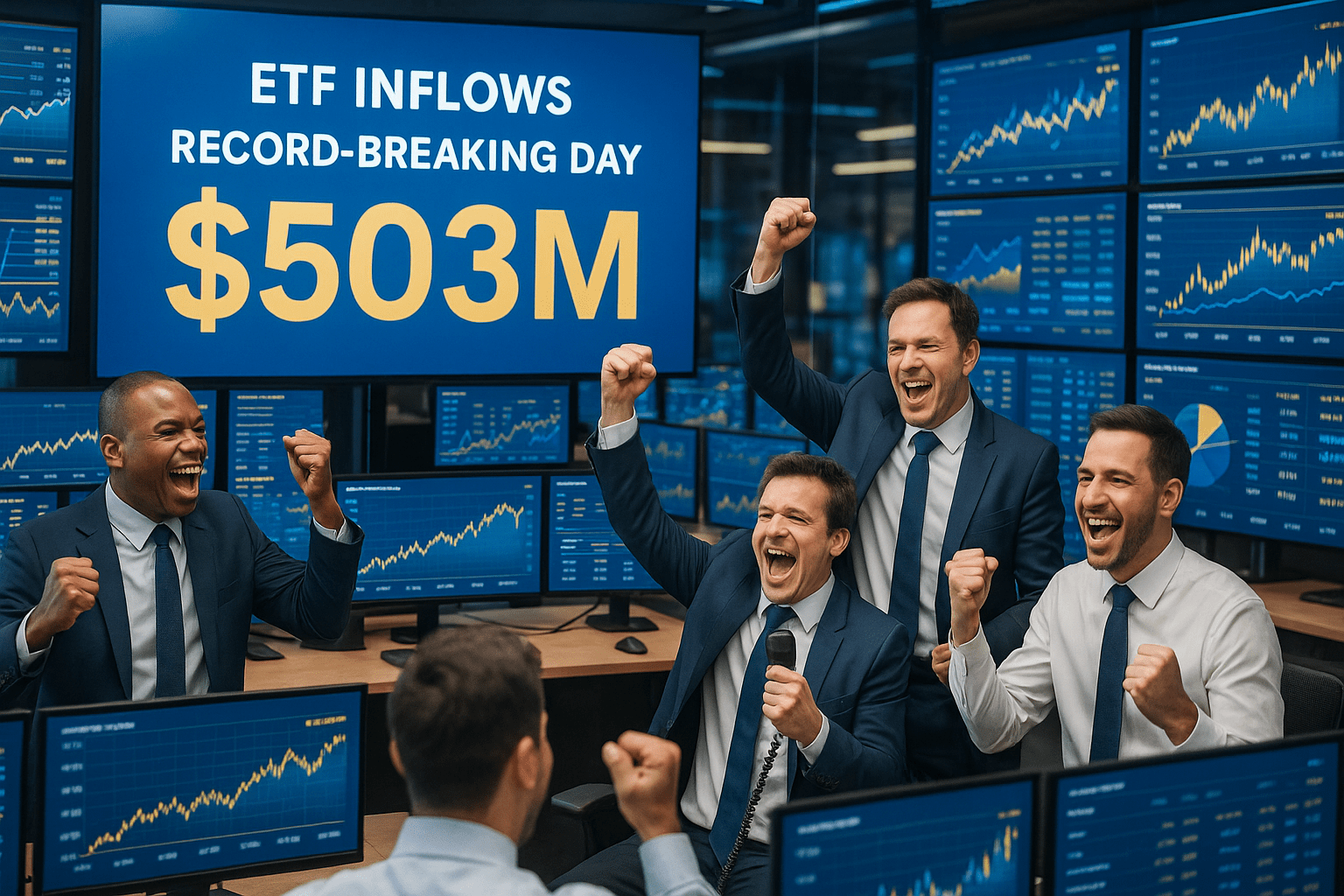
INFLOW!
503 million dollars! This is the net inflow of Bitcoin and Ethereum ETFs in a single day yesterday, setting a recent record. Behind this number is the concentrated explosion of FOMO emotions from institutional investors. Pension funds, insurance companies, asset management firms are all buying crazily.
The allocation of funds is quite interesting: the Bitcoin ETF attracted 350 million, while the Ethereum ETF attracted 150 million. This ratio reflects institutional risk preference: Bitcoin is 'digital gold', more stable; Ethereum is 'digital oil', with more imaginative potential. Buying both is conservative yet aggressive, a typical institutional mindset.
The timing is impeccable. XRP wins the lawsuit, Ethereum breaks 4000, and favorable policies from Trump come into play, with multiple positives overlapping, institutions decisively take action. This precise grasp of market rhythm is something ordinary retail investors really need to learn. Professional investors never chase highs; they take decisive action at critical junctures.
ETFs are an incredibly important tool. They address all the pain points of institutional investment in cryptocurrencies: compliance is guaranteed, liquidity is good, there's no need to worry about private key management, and one can enjoy various conveniences of the traditional financial system. No wonder institutions choose to enter the market through ETFs.
Competition is intensifying. To capture this large pie, various ETF issuers are lowering fees and improving services. Ultimately, the beneficiaries are the investors. Fees are getting lower, products are becoming more diverse, and investing in cryptocurrencies is becoming increasingly easier.
This trend of capital inflow will continue. Institutional allocation to cryptocurrencies has just begun, with most still observing or testing the waters with small positions. Once they taste success, larger-scale capital will enter. 500 million may just be the beginning; in the future, single-day inflows of 1 billion or 2 billion are not out of the question. The market is undergoing a qualitative change, shifting from retail-driven to institution-driven, a process that is irreversible.




